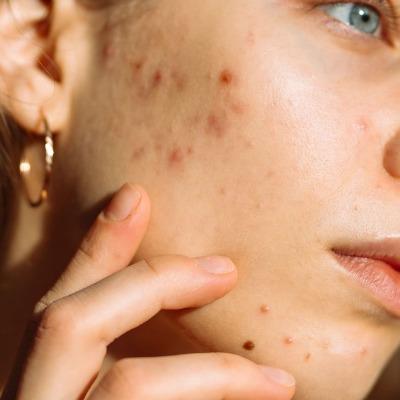Most people experience alterations in their skin when winter is around the corner, more so for people with acne or pimples. Stillness of air, indoor heat, and cooler environments reduce circulation and increase the chances of skin rash, dryness, and acne. Luckily, there are ways in which you may change your skincare strategies to prevent the accumulation of acne on both facial and neck skin in the winter. In this blog, we will write about how we treat acne & pimples during winter in Islamabad.
Why Do Pimples and Acne Get Worse in the Winter?
The dryness of winter air can affect the skin in several ways:
Loss of Moisture:
Cold weather and the use of interior heating reduces the humidity in the air and this is detrimental to the health of the skin because it robs it of the moisture it needs during those harsh conditions so the skin is liable to irritation and acne.
Excess Oil Production:
The skin frequently produces more oil to make up for dryness. This excess oil can block pores, causing outbreaks.
Enhanced Sensitivity:
Wintertime can also exacerbate skin sensitivity, particularly for people who use harsh acne treatments like benzoyl peroxide or retinoids.
Dietary Modifications and Sunlight Deprivation:
Nutrition changes during the winter season and low-light exposure can generally affect the skin condition. Sometimes acne may appear or worsen due to the deficiency of vitamin D and an increase in the consumption of comfort foods.
How to Modify Your Skin Care during Winter
Use a Mild Cleaner Instead
The skin on the face has its sebum which is wiped by the strong cleaning products that are likely to cause problems during the winter. When picking the cleanser you should prefer one that removes the pollutants without over-stripping the face skin causing dryness. Non-frothing oil-based cleansers are softer on the skin barrier but they are better used in winter.
Pay Attention to Hydration
When it is cold, the skin is tight and you need to apply lotion frequently. When buying a moisturizer look for one that contains hyaluronic, glycerin, or ceramide which helps to retain the moisture in the skin as well as fortify the skin barrier and should be non-acnegenic or non-comedogenic since it will not cause blockage of the pores.
Use Exfoliants
Whilst it is important to remove dead skin cells through exfoliation, overdoing it in winter might compromise the skin’s barrier and cause irritation. Exfoliate no more than once or twice per week, with a gentle chemical peel, that is mild AHA or BHA.
Use Serums Wisely
Any serums containing peptides, niacinamide, or hyaluronic acid will not cause the skin to break out but will help to hydrate the skin. However, in its particular form of niacinamide, it can be helpful for the winter, as it has an impact on controlling sebum secretion and decreasing the signs of inflammation, which is helpful for the skin that is break-out prone.
Generally, spot treatments should be used gingerly
Treatments for acne and pimples during winter
A few expert remedies can help keep acne under control during the more difficult-to-manage winter months:
HydraFacial
A non-invasive procedure called HydraFacial moisturizes and exfoliates the skin, which can assist with clogged pores and acne. Because it doesn’t dry out the skin and leaves it feeling renewed, this mild, moisturizing treatment is ideal for winter.
Chemicals Peels
By encouraging faster cell turnover, a gentle chemical peel can help remove dead skin cells and lessen acne. Select milder peels in the winter to prevent skin irritation. Depending on your skin type and the severity of your acne, consult a cosmetic expert to choose which peel is ideal for you.
Light Therapy using LEDs
Blue light in particular from LED light therapy targets microorganisms that cause acne without drying out the skin. Without sacrificing hydration, this treatment can effectively reduce inflammation and pimples while being suitable for sensitive skin.
Microneedling
This means that through microneedling problems such as acne scars and resultant collagen formation are facilitated. If used with moisturizing serums, it can enhance the skin face’s capacity to hold moisture hence perfect for oily skin during the winter months.
Winter Skincare Tips for Preventing Acne
Keeping your skin healthy and preventing winter breakouts can be achieved by implementing a few useful skincare practices:
- Drink water because internal hydration will show on your face.
- Hot water showers should be taken as they will strip the skin of its oils leading to dry skin and acne. Instead, take cold showers.
- Avoid applying much makeup because this may clog the skin pores. Select cosmetics that are marked as noncomedogenic, and affect the product’s weight as little as possible.
- Take a quality diet as most foods with nutrients improve skin standards as they include fruits and vegetables and omega-3 fatty acids.
- Do not take processed foods and sugar as these might cause skin breakouts.
Final Thoughts:
However, winter is not a very friendly season for those with acne-prone skin but small changes can make a big difference. It means that it is possible to prevent worsened conditions of acne or worsened states of skin during winter months but skilled and careful washing, moisturizing, and choosing the right treatment. These everyday routines combined with professional treatments will give you a bright, moisturized complexion throughout the winter. So visit Enfield Royal Clinic for treatment if your acne and pimples get worse in winter and consult with our aestheticians about the procedure which suits you the best.










Leave a Reply